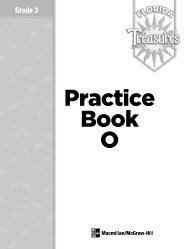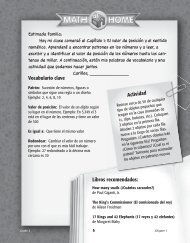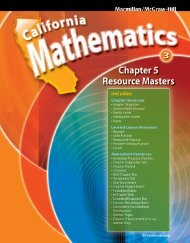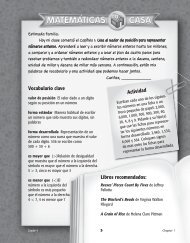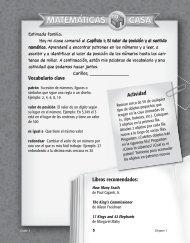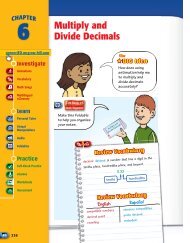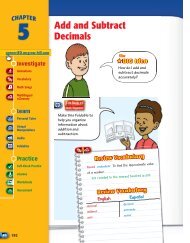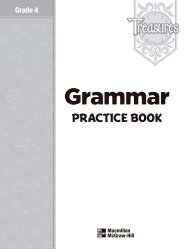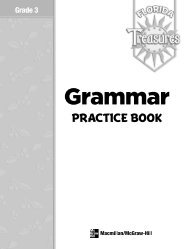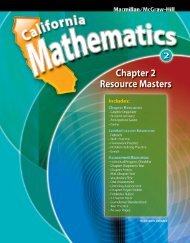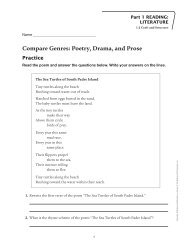Practice - Macmillan/McGraw-Hill
Practice - Macmillan/McGraw-Hill
Practice - Macmillan/McGraw-Hill
You also want an ePaper? Increase the reach of your titles
YUMPU automatically turns print PDFs into web optimized ePapers that Google loves.
© <strong>Macmillan</strong>/<strong>McGraw</strong>-<strong>Hill</strong><br />
Name<br />
A prefix is an affix added to the front of a base or root word. By<br />
adding a prefix, you change the meaning of the word.<br />
In- means “without; not.”<br />
Dis- means “opposite or lack of; not.”<br />
Mis- means “bad or wrong.”<br />
Pre- means “before.”<br />
Add in-, dis-, mis-, or pre- to each of the words in the sentences<br />
below. Use context clues to help you decide which prefix to use.<br />
<strong>Practice</strong><br />
Phonics:<br />
Prefixes: in-,<br />
dis-, mis-, pre-<br />
1. My teacher approves of talking in class because it disturbs<br />
the other students.<br />
2. A lumpy mattress can cause comfort for your back.<br />
3. You may need to wash new clothes before you wear them.<br />
4. The outfi elder judged the fl y ball and did not make the catch.<br />
5. You should not judge food before you try it because you<br />
might actually like it.<br />
6. My father heats the oven before he puts the food in.<br />
7. Rivals often trust each other because they think the other<br />
person is trying to trick them.<br />
8. The cheap toys were expensive, so Mom agreed to buy them.<br />
9. I understood my teacher and wrote the wrong spelling word.<br />
10. It is honest to cheat on a test.<br />
At Home: Write a sentence using the word misjudge. Write<br />
a second sentence using the word prejudge. Explain the<br />
difference.<br />
A Historic Journey • Grade 5/Unit 5<br />
169



